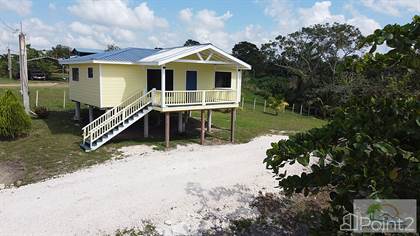Introduction:
Real estate, with its ever-shifting dynamics and tangible impact on our lives, is a cornerstone of economic activity. From residential homes to commercial spaces, the real estate market plays a pivotal role in shaping communities and driving investment. In this article, we explore the multifaceted world of Ambergris Caye Real Estate, examining its key components, trends, and the factors that influence this dynamic industry.
Residential Real Estate:
Homeownership is a fundamental aspect of the American dream and a significant investment for individuals and families. The residential real estate market encompasses a range of properties, from single-family homes to condominiums and apartments. Factors such as location, amenities, and market demand influence property values, creating a dynamic landscape for both buyers and sellers.
The real estate market is not immune to economic fluctuations. During periods of economic growth, demand for housing typically rises, driving property values upward. Conversely, economic downturns may lead to decreased demand and a decline in home prices. Understanding these cycles is crucial for prospective buyers, sellers, and investors alike.
Commercial Real Estate:
Beyond residential properties, the commercial real estate sector is a dynamic arena that includes office spaces, retail establishments, industrial properties, and more. The success of businesses often hinges on strategic location, and as a result, commercial real estate values are influenced by factors such as economic growth, infrastructure development, and market trends.
The rise of e-commerce has also transformed the commercial real estate landscape, with increased demand for distribution centers and last-mile delivery facilities. Conversely, the shift towards remote work has prompted a reevaluation of office space requirements, impacting the demand for commercial properties in city centers.
Investment Opportunities:
Real estate serves as a significant avenue for investment, offering a range of opportunities for individuals and institutional investors alike. Beyond the traditional purchase of physical properties, real estate investment trusts (REITs) provide a means for investors to gain exposure to the real estate market without direct ownership. These trusts typically own, operate, or finance income-producing real estate, offering a way to diversify investment portfolios.
Sustainable and Smart Real Estate:
As societal awareness of environmental issues grows, there is a rising emphasis on sustainable and smart real estate practices. Green building technologies, energy-efficient designs, and eco-friendly materials are increasingly becoming integral to real estate development. The adoption of smart home technologies further enhances the functionality and efficiency of residential properties, appealing to environmentally conscious and tech-savvy buyers.
Challenges and Opportunities:
While real estate presents numerous opportunities, it also comes with challenges. Regulatory changes, economic uncertainties, and unforeseen events such as the COVID-19 pandemic can impact the market. Navigating these challenges requires adaptability and a keen understanding of market trends.
Conclusion:
The real estate market is a dynamic and multifaceted sector that reflects the evolving needs and aspirations of society. Whether buying a first home, investing in commercial properties, or exploring innovative sustainable solutions, real estate remains a cornerstone of economic growth and community development. Staying informed about market trends and understanding the broader economic landscape are essential for individuals and businesses looking to navigate the ever-changing terrain of real estate.


